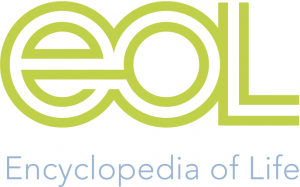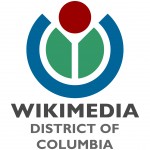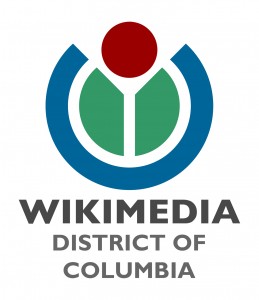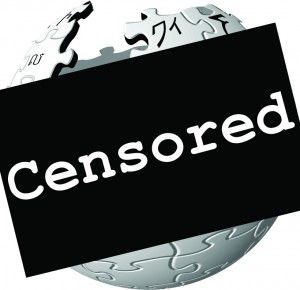Internet Freedom & Global Knowledge: Where do we go from here?
Posted by Nicholas on May 3rd, 2012
More than three months after the SOPA/PIPA protests, a big question still remains for the global Internet community: where do we go from here? The Wikimedia/Wikipedia community, which was divided over the decision to black out the English Wikipedia globally in January, faces a different but related question: have we done enough, and should we remain neutral moving forward? To help answer at least the first question, last week Wikimedia District of Columbia (Wikimedia DC), in partnership with the Washington European Society and the Estonian Embassy in Washington, hosted the inaugural event of the Embassy Outreach Initiative, “Internet Freedom & Open Government: an International Conversation.”
The event, hosted at the Estonian Embassy, featured a discussion with Danny Weitzner, Deputy CTO for Internet Policy at the White House Office of Science & Technology Policy; Chairman Marko Mihkelson, Chairman of the Foreign Affairs Committee of the Estonian Parliament; Ian Schuler, Senior Manager for Internet Freedom Programs at the US State Department; and Rebecca MacKinnon, Bernard L. Schwartz senior fellow at the New America Foundation and a member of the Wikimedia Foundation Advisory Board. Adam Kushner, Deputy Editor of the National Journal, moderated the discussion.
The conversation on Internet freedom highlighted several global issues and programs, such as the State Department’s $76 million effort to support worldwide Internet freedom programs, but two significant points emerged that have a particular significance to the Wikimedia community’s goal of global free access to knowledge. The first was an assertion by both Weitzner and MacKinnon that what we can do on the internet today is not a product of random forces or serendipitous actions, but was the result of hard work, of conscious domestic and international policy decisions, and of global efforts by public and private groups to create the environment in which the current Internet culture exists. This is the same assertion that was at the heart of Sue Gardner’s statement on the eve of the January 18 Wikipedia blackout: that “although Wikipedia’s articles are neutral, its existence is not.”
The global dialogue on Internet freedom did not start on January 18, and it’s far from being over. There is no doubt that Internet freedom will always be a central component to the mission of providing free access to global knowledge. One has to only look toward the Uzbek Wikipedia, which was blocked in Uzbekistan for no good reason, to see an example of how attacking Internet freedom can impede our global vision and goals.
The second significant point from the discussion at the embassy was the perhaps deserved criticism that the Internet community has been largely reactive when it comes to Internet freedom, and it needs alternatively become more proactive and use its power constructively to influence or advocate for suitable alternatives. Stopping SOPA/PIPA and hindering the progress of ACTA did not solve the problems that they were designed to address, and there are already talks of what needs to be done next. The Internet community as a whole, and the Wikimedia community in particular, needs to figure out how it wants to shape the global conversation. We need to, as a movement, decide what role want to play in this dialogue or we run the risk of possibly facing another SOPA not too far down the road. But we also need to be careful to avoid sidelining or disenfranchising those in the movement who are not comfortable with (or legally restricted from) advocacy.
One thing to keep in mind is that promoting advocacy and facilitating dialogue are two different things. We don’t need to advocate for a particular viewpoint or policy to facilitate constructive dialogue about the issue as a whole, if that’s the role we want to play. Sometimes simply being present and making the decision makers aware of our existence and our needs makes a significant difference. SOPA, and particularly ACTA burst onto the scene after years of closed-door negotiations, and that’s part of the reason why the response to them was so intense. Many of the policymakers drafting them had no idea what the needs of the Internet community was, or even how the Internet works, because the Internet community was never a part of that conversation and these policymakers did not even think that the community’s opinion mattered. These policies, and way they developed, would have been radically different had we made our presence, needs, and significance known earlier.
Initiatives at Wikimedia DC, like the upcoming Open Government Project, are designed to do just that— to facilitate dialogue and allow the community to be an active participant, both online and offline, so that our needs are not ignored or misrepresented in the future. We at Wikimedia DC will always work toward the goal of empowering individuals across the globe through access to knowledge, and Washington, DC, is a great place for us to make an impact. After all, it was here where President James Madison wrote that “a people who mean to be their own Governors must arm themselves with the power which knowledge gives.”
Nicholas Michael Bashour, President, Wikimedia District of Columbia
Note: The statements in this post are simply my own and do not represent the opinions of the Board of Directors as a whole
More than three months after the SOPA/PIPA protests, a big question still remains for the global Internet community: where do we go from here? The Wikimedia/Wikipedia community, which was divided over the decision to black out the English Wikipedia globally in January, faces a different but related question: have we done enough, and should we remain neutral moving forward? To help answer at least the first question, last week Wikimedia District of Columbia (Wikimedia DC), in partnership with the Washington European Society and the Estonian Embassy in Washington, hosted the inaugural event of the Embassy Outreach Initiative, “Internet Freedom & Open Government: an International Conversation.”
The event, hosted at the Estonian Embassy, featured a discussion with Danny Weitzner, Deputy CTO for Internet Policy at the White House Office of Science & Technology Policy; Chairman Marko Mihkelson, Chairman of the Foreign Affairs Committee of the Estonian Parliament; Ian Schuler, Senior Manager for Internet Freedom Programs at the US State Department; and Rebecca MacKinnon, Bernard L. Schwartz senior fellow at the New America Foundation and a member of the Wikimedia Foundation Advisory Board. Adam Kushner, Deputy Editor of the National Journal, moderated the discussion.
The conversation on Internet freedom highlighted several global issues and programs, such as the State Department’s $76 million effort to support worldwide Internet freedom programs, but two significant points emerged that have a particular significance to the Wikimedia community’s goal of global free access to knowledge. The first was an assertion by both Weitzner and MacKinnon that what we can do on the internet today is not a product of random forces or serendipitous actions, but was the result of hard work, of conscious domestic and international policy decisions, and of global efforts by public and private groups to create the environment in which the current Internet culture exists. This is the same assertion that was at the heart of Sue Gardner’s statement on the eve of the January 18 Wikipedia blackout: that “although Wikipedia’s articles are neutral, its existence is not.”
The global dialogue on Internet freedom did not start on January 18, and it’s far from being over. There is no doubt that Internet freedom will always be a central component to the mission of providing free access to global knowledge. One has to only look toward the Uzbek Wikipedia, which was blocked in Uzbekistan for no good reason, to see an example of how attacking Internet freedom can impede our global vision and goals.
The second significant point from the discussion at the embassy was the perhaps deserved criticism that the Internet community has been largely reactive when it comes to Internet freedom, and it needs alternatively become more proactive and use its power constructively to influence or advocate for suitable alternatives. Stopping SOPA/PIPA and hindering the progress of ACTA did not solve the problems that they were designed to address, and there are already talks of what needs to be done next. The Internet community as a whole, and the Wikimedia community in particular, needs to figure out how it wants to shape the global conversation. We need to, as a movement, decide what role want to play in this dialogue or we run the risk of possibly facing another SOPA not too far down the road. But we also need to be careful to avoid sidelining or disenfranchising those in the movement who are not comfortable with (or legally restricted from) advocacy.
One thing to keep in mind is that promoting advocacy and facilitating dialogue are two different things. We don’t need to advocate for a particular viewpoint or policy to facilitate constructive dialogue about the issue as a whole, if that’s the role we want to play. Sometimes simply being present and making the decision makers aware of our existence and our needs makes a significant difference. SOPA, and particularly ACTA burst onto the scene after years of closed-door negotiations, and that’s part of the reason why the response to them was so intense. Many of the policymakers drafting them had no idea what the needs of the Internet community was, or even how the Internet works, because the Internet community was never a part of that conversation and these policymakers did not even think that the community’s opinion mattered. These policies, and way they developed, would have been radically different had we made our presence, needs, and significance known earlier.
Initiatives at Wikimedia DC, like the upcoming Open Government Project, are designed to do just that— to facilitate dialogue and allow the community to be an active participant, both online and offline, so that our needs are not ignored or misrepresented in the future. We at Wikimedia DC will always work toward the goal of empowering individuals across the globe through access to knowledge, and Washington, DC, is a great place for us to make an impact. After all, it was here where President James Madison wrote that “a people who mean to be their own Governors must arm themselves with the power which knowledge gives.”
Nicholas Michael Bashour, President, Wikimedia District of Columbia
Note: The statements in this post are simply my own and do not represent the opinions of the Board of Directors as a whole





